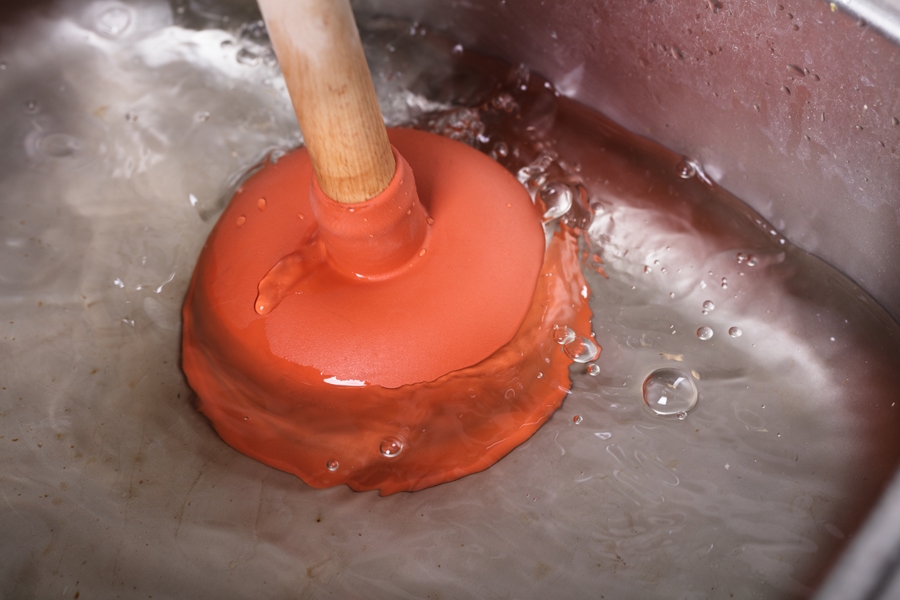6 Common Plumbing Mistakes to Avoid

Whether it’s a clogged toilet or a slow-running drain, plumbing problems are never fun. With the growing do-it-yourself mentality and the access to a great deal of how-to information online, it can be tempting to try to resolve your plumbing issues on your own.
Before you give it a try in your Acton home, take to heart these common plumbing mistakes our Basnett Plumbing, Heating & AC professionals often see. These tips may help you avoid making existing problems worse or even circumvent plumbing problems all together.
1. Use the correct tool to unclog your drain.
A clogged drain can be extremely frustrating, and it’s easy to try to resort to many ineffective ways to resolve the problem. Avoid the following plumbing mistakes:
• Homemade tools. Items like bent clothes hangers are tempting to use to try to unclog a drain. These are not designed to do the job and can often cause additional damage.
• High-pressure water. Don’t bring the garden hose or any other high-pressure water source into the home to tackle the job. Too much water pressure can break your indoor water lines.
• Chemical drain cleaners. Most are not strong enough to break up common clogs and can be dangerous for your indoor air quality (IAQ), family’s health, and the environment. In addition, they can corrode your pipes and cause future leaks in your plumbing system.
• Wrong-sized tools. Be sure you’re using an auger or snake designed for the drain you’re working on. One size does not fit all.
Instead, here are the best ideas for unclogging drains:
• Start with a plunger. Use a higher quality one, especially on the toilet, so you can build a good seal.
• Use the correct-sized tool. If you have an auger or snake designed for the existing problem, you can use it as directed.
• Empty the P-trap under the sink. For your sink clogs, check and empty the P-trap where many clogs reside.
• Call a professional. It’s best to call one of our expert plumbers to help you unclog your drain safely and effectively.
2. Don’t try too hard on minor plumbing repairs.
If you attempt some basic plumbing repairs in your Massachusetts home, be sure you don’t use too much muscle on common adjustments.
For example, if you’re tightening supply tubes, fittings, pipes, or toilet bolts, be sure not to overtighten them. It’s easy to break the fitting or at least weaken it so then you have a cracked component or pipe down the road, which can cause a flood. In some cases, overtightening the toilet bolts can actually damage or destroy a porcelain toilet.
Along the same lines, don’t force a stuck sink or toilet shut-off valve. If this valve has not been used for a long time, the stem packing seal usually adheres itself to the valve stem.
To solve this problem correctly, use an adjustable wrench to gently loosen the nut. If you use too much muscle, you can break the knob as well as the valve steam, causing a larger problem.
3. Don’t overload your garbage disposal.
If you have a garbage disposal in your kitchen, use it carefully. Feed it one item at a time, and be sure the disposal is clear before adding more waste.
Overloading your disposal can cause jams and clogs as well as overheat your unit. You may want to occasionally clean your garbage disposal as well.
If your disposal is already clogged, shut the unit off and try to carefully remove any large pieces you can still reach. If you can’t see or feel the clog, you may need to turn to a professional to take apart the disposal and fix the plumbing problem.
4. Avoid using your garbage disposal for inappropriate items.
Disposals are designed to shred small food scraps. Putting the wrong foods or items down your disposal can cause the blades to jam or clog your drain. Avoid putting fibrous foods such as celery, corn husks, or potato peels down your disposal.
Grease, fats, and oils can solidify and clog your drain. Egg shells, potatoes, pasta, and beans should also make their way to the compost pile or garbage, as should all nonfood items.
5. Flush only waste and toilet paper down the toilet.
You’ve probably seen the signs in public bathrooms that warn you to avoid flushing garbage down the toilet. Even small items such as cotton balls, cotton swabs, paper towels, baby wipes, tissues, or hygiene products can build up and cause significant clogs and problems down the road.
6. Use drain traps in your sinks, showers, and bathtubs.
Drain traps are designed to catch hair and soap scum. Although it doesn’t seem like a little soap or hair makes a difference, these items slowly build up to cause a clog.
Call Our Basnett Plumbing, Heating & AC Plumbers Today
If you’re facing plumbing problems, turn to Basnett Plumbing, Heating & AC in Acton, MA, for help. Our trained and experienced plumbers would be happy to help you with clogs, new plumbing installations, or repairs. Call 978-431-2906 or request service online today.
Need HVAC Service?
Contact the experts at Basnett Plumbing, Heating, AC & Electrical.
Call us at 978-431-2906!
